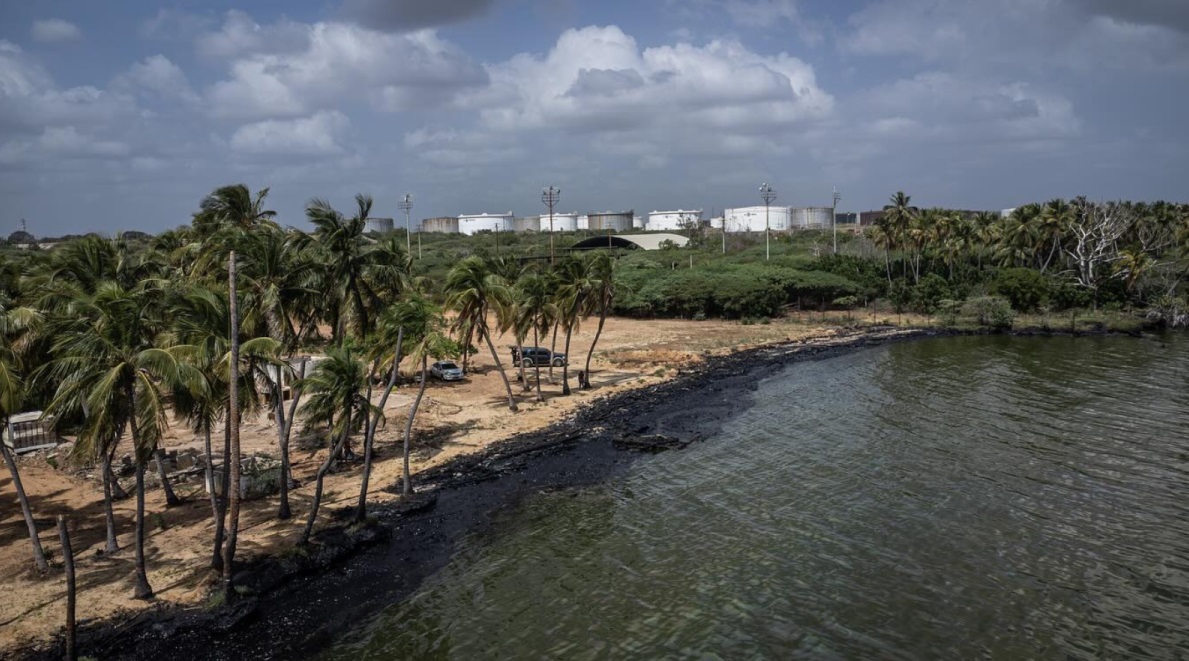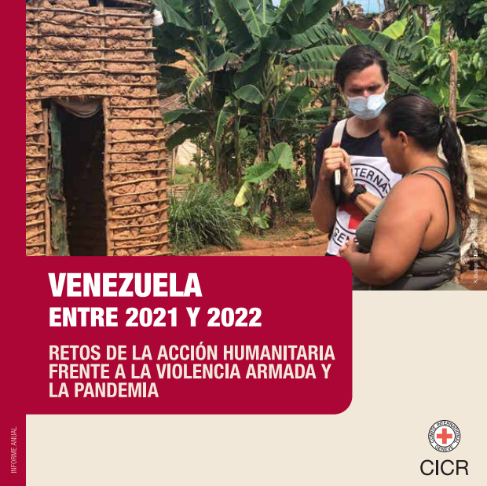Humanitarian principles, clusters, humanitarian space, and all that jargon, were terms that used to make Venezuelans think of natural disasters, the famines of sub-Saharan Africa, or any ethnic conflict somewhere else in the world.
However, some 5 years ago, civil society organizations started to warn about the imminent possibility of Venezuela entering a humanitarian emergency. The government used to attack this assertion, branding it alarmist, gloomy, and servile to imperial interests.
As time went by, the statistics began to speak for themselves and show alarming indications of an inexorable fate: increased poverty and malnutrition levels, dismantling of the State’s protection capabilities, among other calamities.
This is how our humanitarian emergency began to be typified, and this happened because it was an atypical emergency, not the product of a natural disaster, famine, or the consequence of war or ethnic disputes. Nevertheless, we began to exhibit very social and economic indicators similar to countries that have undergone emergencies for any of those reasons.
Since then, civil society organizations linked to the field of human rights and the enforceability of the Economic, Social, and Cultural rights have tried to assert the dimension of our atypical emergency and propose mechanisms to address it, given that the measures to prevent it from arising in the first place were never taken; It only remained to think about the mitigation of the impact. It is important to clarify that these alerts began to be made since 2016, and were welcomed with attacks and sarcasm.
After studying past experiences of humanitarian emergencies in the world, it is possible to find a typology that defines what Venezuela was beginning to experience for the first time in its history as a nation: A “Complex Humanitarian Emergency”, defined by FAO as “a major humanitarian crisis that is often the result of a combination of political instability, conflict and violence, social inequities and underlying poverty. Complex emergencies are essentially political in nature and can (…) undermine livelihoods and worsen poverty.”
The worsening of the conditions in Venezuela and the insistence of civil society organizations finally makes the United Nations agencies set their sights on the country, and begin to make incipient, and shy warnings about our situation, under the indifferent gaze of the government, which insisted on denying the situation through various excuses, being economic sanctions the most used.
There was a whole movement from civil society between 2016-2018 demanding the need for the Venezuelan government to accept humanitarian aid, which many countries were already beginning to be willing to provide. The former independent United Nations expert Alfred De Zayas, a man very close to the Venezuelan government, suggested the Venezuelan State in his latest report on the country, to accept the humanitarian aid offered by several countries and recognize the existence of very adverse conditions.
Thus, at the end of 2018 and early 2019, some of the United Nations agencies began to establish operations in the country under a sweetened framework, with a limited mandate and closely monitored by the government, which maintained its position of denying the humanitarian emergency in the country.
Despite the multiple obstacles on the part of the government for the installation of a humanitarian team and on-site operations of many national and international organizations, 2019 saw the almost total installation of the clusters and the preparation of an unprecedented plan for the country, the 2019 Humanitarian Response Plan (HRP), which was an approximation to the difficult situation that the country was going through; a blend of truths, half-truths, and complacent data to avoid further obstacles from the government to the humanitarian operation.
The plan established the number of people with humanitarian needs at 7 million, and the goal of care was set at 2.3 million at a cost of $ 223 million. The universe of people with humanitarian needs has been a subject of controversy and even more so the limited goal of care that leaves out almost 5 million people who need help to get by. This arduous and politically careful response plan was completed well into 2019, in the second half to be more exact, and had a limited capacity to raise resources, failing to raise even half of the funds required to its operation.
To the weaknesses of the plan were added the government’s efficient capacity to hinder the humanitarian operation, the limitations on the mobility of humanitarian actors, the confiscation and retention of humanitarian supplies, and the non-issuance of NGO operation permits. These were just some of the obstacles that humanitarian actors had to overcome throughout 2019.
We started to envision the year 2020 without being completely acquainted with the goals achieved by the HRP-2019, with increasing obstacles to operate, and amid an escalation of the country’s humanitarian problems.
The 2020 HRP was conceived to achieve the goals that could not be reached in 2019. However, we did not have in the equation the emergence of the COVID-19 pandemic, which precipitated an emergency within another, putting to the test a country with diminished sanitary capacities and 7 million souls that, without help, could become a fatal statistic.
Amid a pandemic with exponential growth, the HRP-2020 is launched with a delay, much like its twin brother, the 2019 version. The plan maintains the universe of people with humanitarian needs at 7 million and expands its goal of care to 4.5 million. Whether the expansion is the addition of the 2019 commitments plus the true goal of 2020 remains unknown. In budgetary matters, the collection goal was expanded to $ 762.5 million, where 83% of the funds were to be requested by the United Nations agencies, 7% by national organizations, 5% by international organizations, and 5% by others.
Although this HRP-2020 expands its goal of attention, it is still insufficient for the seriousness of the Venezuelan situation, which, as evidenced in the recent results of the 2019 National Survey on Living Conditions (ENCOVI), is much more severe in damage and the number of people affected.
This HRP-2020 now goes out to look for financial support to pay for its operations. In an international context where each country is facing its own problems associated with the COVID-19 pandemic, it is quite difficult to predict a prolific collection performance. The Venezuelan emergency was already beginning to lose appeal in the humanitarian world, and now the pandemic is very likely to accentuate this situation; we are facing the risk of seeing our crisis become a forgotten emergency.
As a prominent feature, the HRP-2020 highlights and recognizes the operational challenges that humanitarian organizations and workers had to face in 2019 including “the politicization of humanitarian aid, logistical constraints due to lack of fuel and the deterioration in basic infrastructure and public services, the lack of trust or reticence regarding humanitarian action in some areas, and the localized presence of irregular armed groups. Administrative constraints also affect the entry of organizations, personnel, and supplies, especially for international NGOs, and limit operations and movements throughout the country.” (Summary of the 2020 Humanitarian Response Plan With Humanitarian Needs Overview Venezuela)
It is urgent to carry out all the necessary actions to allow the World Food Program into the country; only they can have an impact on the mitigation of the nutritional damage that millions of people already suffer and the recovery of local food production and logistical capacities.
Finally, we are facing a perfect storm, from which we will not be able to get out without help. It is necessary to expand, preserve, fortify, finance, and depoliticize the humanitarian space to be able to implement a humanitarian response plan based on the needs and the principle of protecting people, in which neutrality is not to be confused with silence against deliberate harm. There are many past humanitarian experiences where neutrality was paid for with the lives of innocents who could be saved. Let us prevent the complex humanitarian emergency in Venezuela from being remembered as a humanitarian catastrophe. We still have time to protect people.
Translated by: José Rafael Medina.




